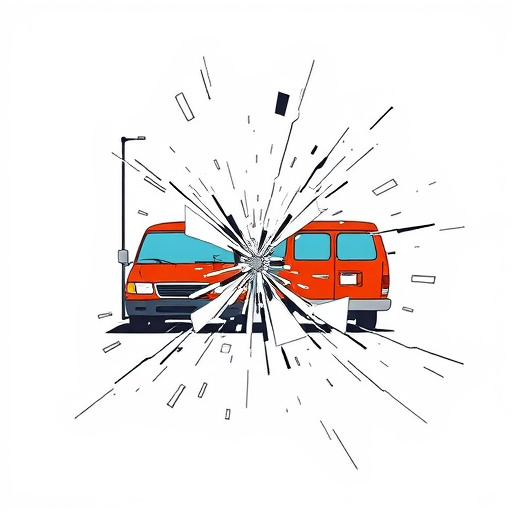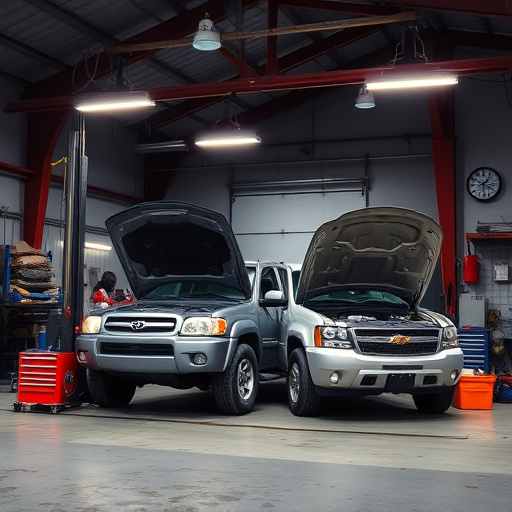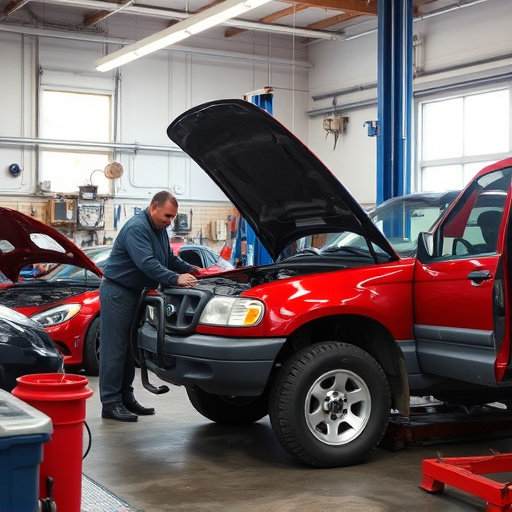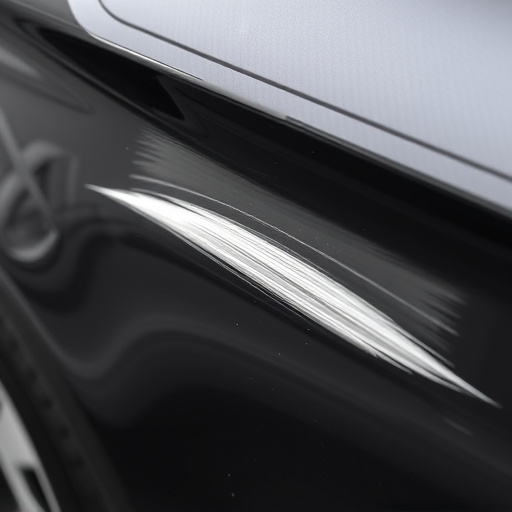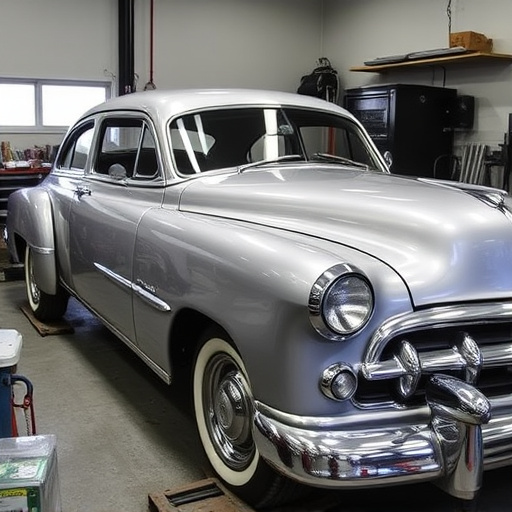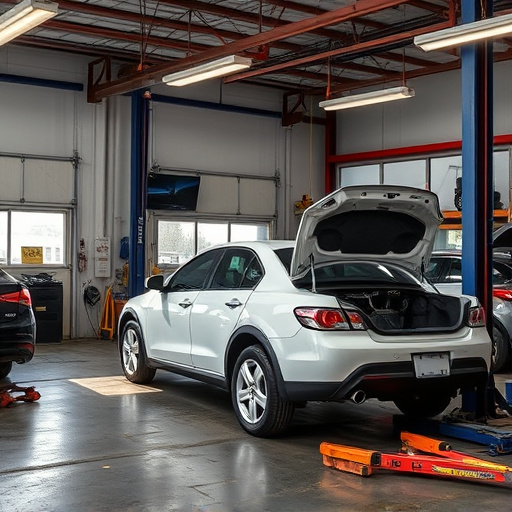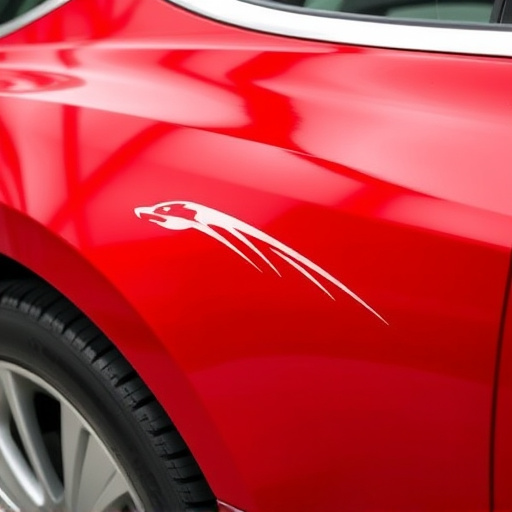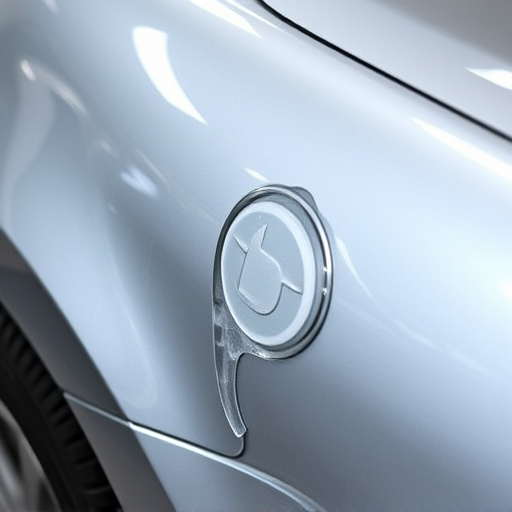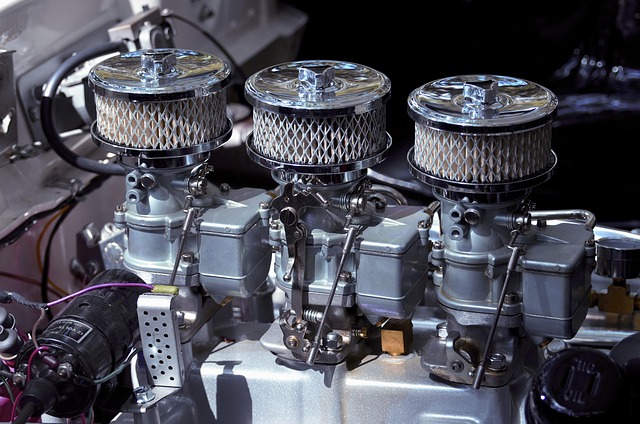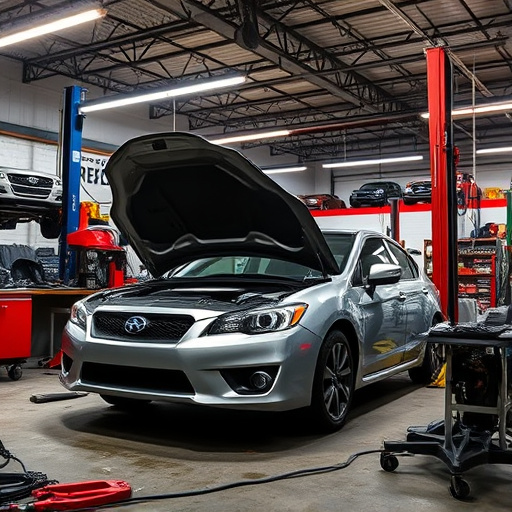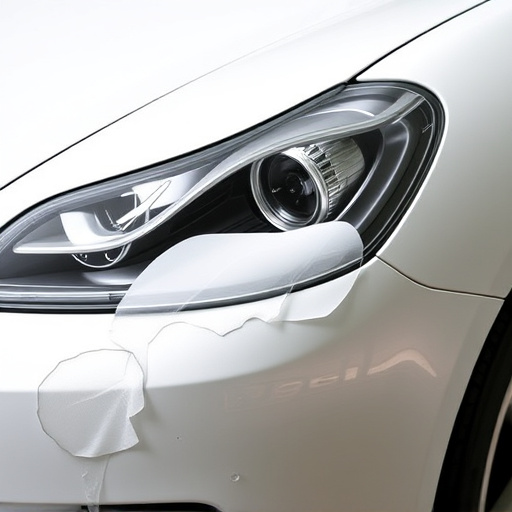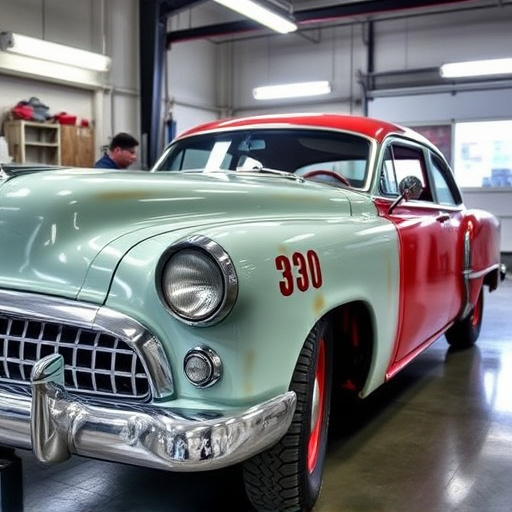Partial panel replacement is an eco-friendly and cost-effective solution for classic car restoration, reducing waste, minimizing material usage, and lowering carbon footprint by repairing specific damaged areas rather than replacing entire panels. Skilled technicians accurately assess, cut out, and seamlessly integrate new panels, preserving resources and streamlining processes while maintaining vehicles' original appearance.
Partial panel replacement is a sustainable repair strategy gaining traction in the construction industry. This approach involves replacing only the damaged or deteriorating sections of a structure, rather than full reconstruction. By minimizing waste and optimizing material usage, it significantly reduces environmental impact. This article explores the benefits and considerations of partial panel replacement, including cost-effectiveness, time savings, and the expertise required to execute these repairs efficiently, making it a viable green solution for various structures.
- Understanding Partial Panel Replacement: A Sustainable Approach
- Environmental Benefits: Reducing Waste and Resources
- Practical Considerations: Cost, Time, and Expertise
Understanding Partial Panel Replacement: A Sustainable Approach
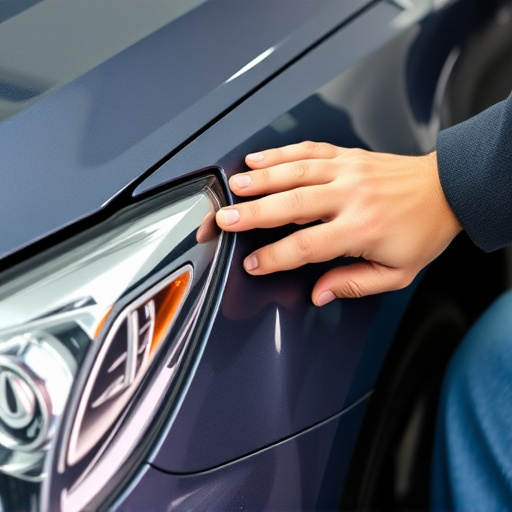
Partial panel replacement is a game-changer for sustainable automotive repairs, especially in the realm of classic car restoration. It involves replacing only the damaged or deteriorating sections of a vehicle’s body panel rather than the entire panel. This targeted approach offers several environmental benefits. By minimizing waste and material usage, it reduces the carbon footprint associated with traditional auto body repair methods.
In a vehicle body shop, adopting this technique requires skilled technicians who can accurately assess and cut out the damaged area, then seamlessly integrate new panels. The result is a restored vehicle that appears as good as new while preserving resources and reducing the demand for excessive production of new parts, reflecting a key aspect of sustainable practices in automotive restoration.
Environmental Benefits: Reducing Waste and Resources
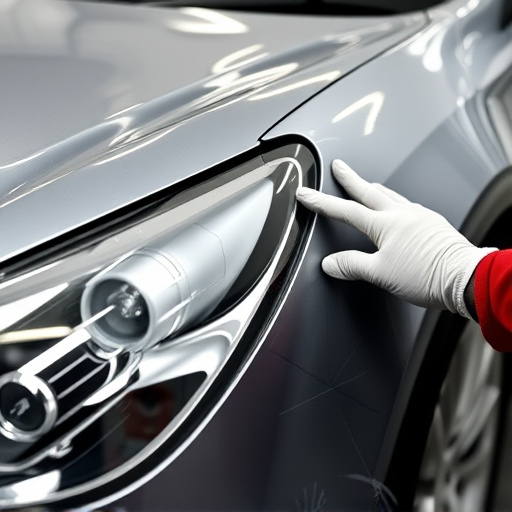
One of the most significant environmental benefits of partial panel replacement is its ability to minimize waste and conserve resources. Traditional car repair methods often involve replacing entire components or bodies, leading to a substantial amount of scrap material and energy consumption. However, with partial panel repair, car repair shops can focus on fixing specific damaged areas while reusing or recycling intact parts. This approach significantly reduces the demand for raw materials, lowers manufacturing costs, and minimizes the carbon footprint associated with production lines.
Furthermore, fender repair and other surface-level car restoration techniques become more viable when employing partial panel replacement. By only repairing the necessary sections, shops can avoid excessive disassembly and reassembly, reducing the time and energy spent on labor-intensive processes. This not only benefits the environment but also contributes to cost savings for both repair facilities and vehicle owners, making sustainable practices in car repair more accessible and appealing.
Practical Considerations: Cost, Time, and Expertise
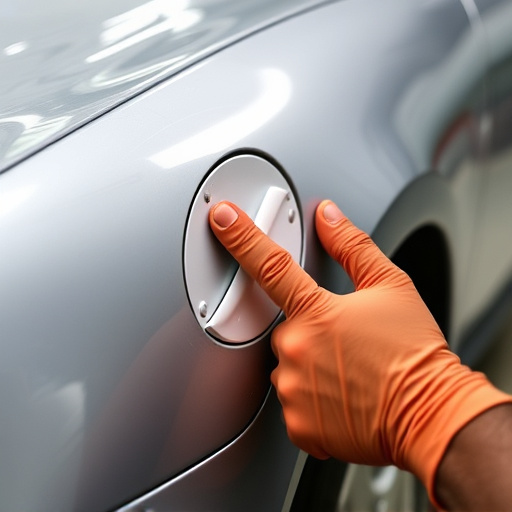
When considering repairs for damaged vehicles, partial panel replacement offers a sustainable and cost-effective solution compared to traditional full panel replacements. This method involves repairing or replacing only the affected area of the vehicle’s body panel, rather than the entire panel. One significant advantage is the reduction in material waste, which aligns with sustainability goals by minimizing environmental impact.
From a practical standpoint, partial panel replacement offers time and cost savings. It requires less labor since only a specific section needs to be addressed, leading to shorter repair times. Moreover, this approach can be more affordable for both vehicle owners and repair shops, as it involves less intensive work and reduced material usage. Even specialized services like paintless dent repair, which aims to remove dents without repainting, can be integrated into partial panel replacement processes, further enhancing efficiency and the overall quality of car dent removal and paint services.
Partial panel replacement is a sustainable repair method that minimizes waste, conserves resources, and offers cost-effective solutions. By only replacing damaged components rather than entire structures, this approach reduces construction waste and lowers environmental impact. While it requires careful planning and specialized expertise, the practical benefits make it a compelling choice for eco-conscious repairs, ensuring both structural integrity and a smaller ecological footprint.
